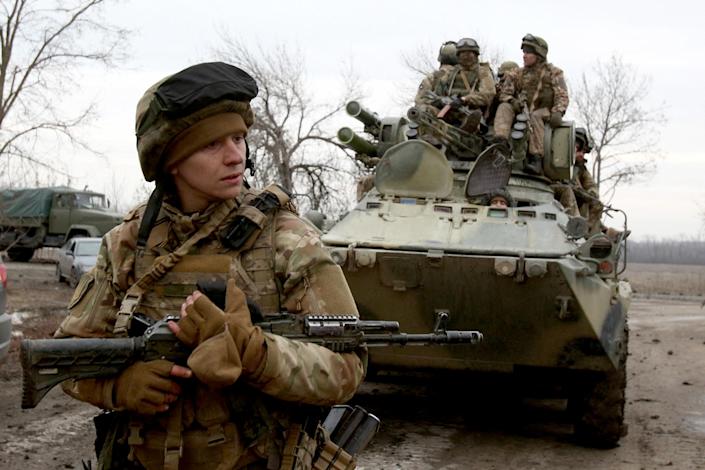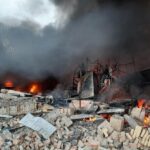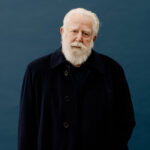When war came to Europe on Thursday, it was delivered with terrifying force and a blunt warning.
After months of military buildup, thinly veiled threats and frenzied speculation, the scale of Russian President Vladimir Putin’s plans was finally made clear.
In a pre-dawn address on Russian television, Putin announced that he was attacking Ukraine, a sovereign democracy on his doorstep. The barrage started minutes later — a moment the United States and its have allies have predicted for weeks, but which nonetheless reverberated throughout the international order.
Putin’s speech contained a chilling warning to any countries thinking of leaping to Ukraine’s defense in the face of a Russian invasion: intervene and you will face the full force of the Kremlin’s nuclear arsenal.
“I decided to conduct a special military operation,” Putin said, wearing a suit and a red tie and sitting behind his now-familiar desk, flanked by two Russian flags and a cluster of retro-looking telephones.
Russia “is today one of the most powerful nuclear powers in the world,” he added, as if Washington, London and Paris needed reminding of his world-largest arsenal. “No one should have any doubts that a direct attack on our country will lead to defeat and dire consequences for any potential aggressor.”


The message was received unambiguously.
“The Kremlin’s aim is to re-establish its sphere of influence, rip up the global rules that have kept us all safe for decades and subvert the values that we hold dear,” NATO Secretary-General Jens Stoltenberg said Thursday. “Peace on our continent has been shattered.”
Russia’s invasion is likely to cause mass casualties, a humanitarian crisis and economic chaos, and it is sure to draw severe sanctions against Moscow. But while the fog of missile strikes hung over Eastern Europe on Thursday, it was clear the continent was waking to a different threat from Moscow.
In his 20-plus years of rule, Putin has annexed Ukraine’s Crimean Peninsula, carved off regions of neighboring Georgia, helped turn the tide in Syria’s civil war and interfered in elections across the globe.
The Russian leader has often used proxy forces abroad, and denied any election interference. But many Kremlin-watchers see the Ukraine invasion as a departure even from his bellicose standards.
One unforeseen consequence of the pandemic, tweeted Lawrence Freedman, emeritus professor of war studies at Kings College London, was that Putin would become “a paranoid autocrat in isolation nurturing his fantasies of war.”
As recently as a week ago, a convincing case could be made that the Russian leader was bluffing with his military buildup.
Putin was issuing bold demands to the West about security guarantees while massing troops on his neighbor’s borders, but unlike previous conflicts Russia’s Kremlin-controlled state media was not selling its audience on the idea that war was imminent. That switch was flipped last week.
Then on Monday, Putin stopped short of declaring war but laid out the case for one, delivering a revisionist history that painted Ukraine as an illegitimate country that belonged within Moscow’s realm.
As he launched his attack Thursday, Putin turned his attention to the West.
Washington, he said, has sought to dominate the world since the end of the Cold War: pressuring allies to hew to its cultural norms; using this hegemonic dominance to launch illegal wars; and encircling Russia by expanding NATO into former Soviet republics in Eastern Europe.
The Western “war machine is moving,” he warned, “and, I repeat, is coming close to our borders.”
NATO, the U.S. and indeed the former Soviet republics themselves would all point out that these countries overwhelmingly voted for independence in 1991 as the Soviet Union collapsed, then voluntarily joined alliances like the European Union and NATO.
What Putin actually wants to stop, many analysts in the West believe, is not NATO, but rather the liberal democracy on his doorstep that contrasts with his own repressive state.
Ukraine “had this simple idea that they wanted to have free and fair elections and not have people in Moscow telling them what to do,” Michael McFaul, a former U.S. ambassador to Russia, said on MSNBC Thursday. And now Putin “wants them to pay the price.”
The Kremlin’s brazen actions should also be a clarifying moment for European powers that they are now firmly in a new era of security, said Fabrice Pothier, NATO’s former head of policy planning, in comments made before the Russian attack.
More so than the U.S. and U.K., France and Germany have treated Putin as a man who can be reasoned with diplomatically, Pothier said. But if nothing else the Ukraine crisis should have made this complex picture far simpler.
“Our security,” he said, “depends on the mood of an autocrat.”




